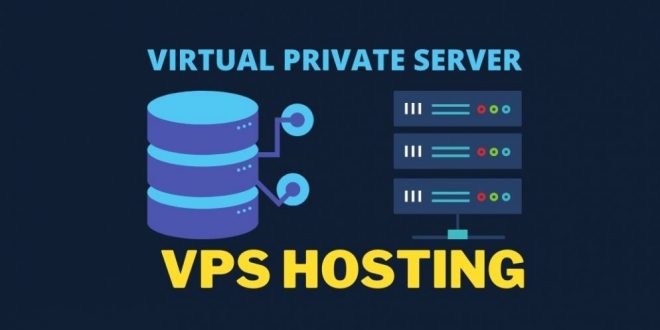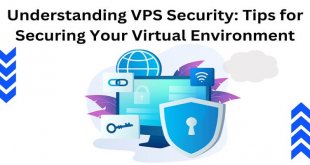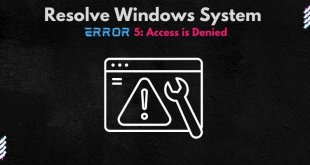A VPS, or virtual private server, is a great place to start for personal and small business hosting projects. Virtual private server providers typically have a range of VPS hosting solutions that vary in hardware usage capacity, storage, and price. Choosing between the available VPS Plans can be a challenge for anyone who is new to hosting and unfamiliar with the technical requirements needed for their hosting project. A VPS is a great low-cost alternative to paying for dedicated hardware, whether you’re working on a website or creating a new gaming server.
VPS serves as the cost-effective middle ground between hosting on personal hardware and a dedicated server. Hosting on personal computers puts significant pressure on your hardware and limits your capacity for other computing tasks and projects. Hosting with a dedicated server, on the other hand, is expensive because you are often renting out time on top-of-the-line server hardware. In many cases, the customization options available on a dedicated server are not a necessity for hosting smaller and mid-range hosting projects.
A VPS starts as low as $6 a month but scales upwards in cost depending on the performance and technical capabilities of a particular instance. You can find a cheap VPS plan with great features that will satisfy your needs. This article will cover some of the key differences between a hosting services provider’s VPS products and explain the uses for each tier of service. To start, let’s take a closer look at what a VPS is and how it works.
What is a Virtual Private Server?
A Virtual private server is a partitioned instance of a datacenter’s server hardware used for hosting. A single physical server often contains several VPS instances, each of which is utilized by a different end-user. Consumers who purchase a VPS can log in and configure hosting settings for their single partition, but don’t have control over the hardware. Instead, the hardware on which the VPS operates is managed by the web services provider. The server hardware is located in a secure, temperature-controlled environment to ensure that there are no downtimes.
Differences Between VPS Plans
A variety of technical specifications and limitations differentiate VPS in terms of cost. The hardware stays the same between these hosting plans, but the portion of the hardware dedicated for your use increases as the price does. As the number of users visiting your website or playing on your game server increases, you’ll need better technical specifications. Here are a few of the differentiating factors that help determine the price of a VPS.
Processor and Memory
Starter VPS plans, which are typically below 10$, have strict processors and memory utilization limitations that make them ideal for personal projects rather than for business uses. Web services providers list divisions in processor use with vCore, or voltage cores. Low-cost VPS plans typically start at 1vCore and move up to 8vCore. Because your VPS operates on high-end hardware, the smaller voltage core processor offerings still offer significant performance improvements when compared with average consumer hardware.
Memory utilization also increases with the cost. Basic VPS offerings start with 1 to 2 GB of RAM, which can place considerable restrictions on the number of users that can simultaneously visit your site or play on your gaming server. For blogs and games with a handful of friends, a few GBs of RAM is likely sufficient. For small businesses and eCommerce websites, you’ll need to make significant upgrades beyond this level of service. More expensive VPS plans offer up to 32 GB of RAM to work with when hosting.
Storage
Most server hardware that hosts VPS instances operates exclusively with SSD (solid-state drive) storage. NVMe SSDs are standard high-speed storage solutions that outstrip most consumer hardware. Storage capacity will vary greatly depending on the cost of the VPS and can range anywhere from 40 to 750 GBs. You may want to prioritize performance-related technical specifications before selecting a VPS plan based on the storage capacity. If you’re running a VPS and find you’re short on space, you can either upgrade to the next tier of service or reconsider your backup protocols- they may be utilizing a significant portion of your allocated disk space.
Bandwidth
Bandwidth limitations set the limitations on user capacity for your website or gaming server. A lower maximum bandwidth when hosting a website through a VPS may slow down your page loading speed, which can retroactively affect your site health and SEO rankings. VPS can only send a limited amount of data at once. As the number of users simultaneously requesting data from the site (i.e., loading pages) increases, so too does the necessity for more bandwidth, to ensure that every user can load pages quickly and at the same time. Bandwidth for low-end VPS offerings may start as low as 200 Mbps. As you increase the value of your VPS plan, maximum bandwidth will likely move upwards of 2Gbps.
Pricing
A VPS is a valuable investment in your project, website, gaming server, or small business web requirements. Low-cost VPS typically start below 10$ a month. While higher-end offerings may cost as much as 40$ a month. For personal use, it’s typically best, to begin with, a low price option.Upgrade over time as you see the technical requirements for your hosting project increasing. If you’re hosting a business or eCommerce website, it may be smarter to start with mid-range VPS offerings instead. The scalability of VPS makes it easy to find the pricing point that matches the technical requirements of your business or personal hosting requirements.
Conclusion- How to Compare VPS Plans for Hosting
A virtual private server is one of the best inexpensive hosting solutions that avoid putting any strain on your personal hardware. Whether you’re looking at hosting options for a class project, a gaming server, or a business website. A web services provider will have a few tiers of VPS products tailored to your computing requirements. If the bandwidth, storage, and memory limitations of a VPS don’t meet your needs. You may want to consider a dedicated server for hosting instead.
 free html design Free html design templates
free html design Free html design templates







